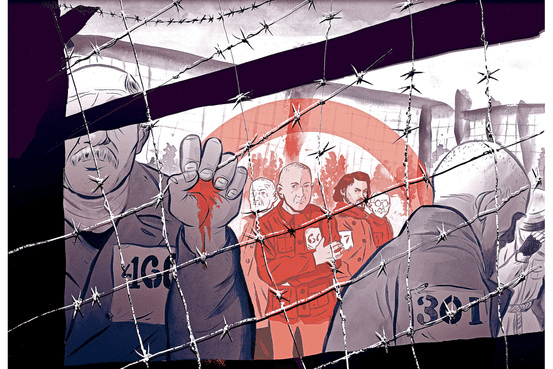
by Dr. Ed Brenegar | Jun 20, 2021 | Book, Centralized Institutions, Circle of Impact, Decentralized Networks, Impact, Network of Relationships, Questions, Transition, Two Global Forces
When people solve their own problems, they also gain skills in communication, collaboration, and innovation. All are leadership skills that everyone needs to acquire regardless of the position that they have in the organization. What, then, is the impact of this approach to leadership. In simple terms, it moves an organization from being leadership starved to being leader-rich. More definitively, it decentralizes the capacity of an organization to solve its problems. I saw this effect in an organization that I served many years ago. Small problems flowed up through the hierarchy to the vice-president’s desk. By then a problem had turned into an issue between the company and the union. When the company implemented a program to train and support all their employees in practicing these leadership skills, the trust level in the company grew, ultimately gaining the awareness of Forbes magazine in their annual list of most trustworthy companies. This is the potential that results from elevating the leadership capacity of people.

by Dr. Ed Brenegar | Apr 25, 2020 | Brand, Circle of Impact, Impact, Questions, Uncategorized
“It is vitally important that we understand what change is. It is the living, dynamic context of our lives. Every thought, every emotion, every action, every response in a particular moment operates within a change context. Every movement, shift in perspective, or initiative taken happens within the context of change.
Change is so prevalent that we don’t even see it. It is invisible until it becomes toxic or threatening. Then, we see it or feel it so much that we want to get out of it. Change is always present. It is our best friend and our worst enemy.
The skill needed is a recognition that we are always in transition. It is not just a mental note that change is always present. It is seeing precisely what kind of change is happening in the moment. Did I anticipate my clients stepping back from the projects we had planned? I was not surprised. All around me were people I knew whose businesses were in crisis.”
Change is the context of our lives. The question is how do we embrace it.

by Dr. Ed Brenegar | Apr 10, 2020 | Centralized Institutions, Circle of Impact, Community, Conversations, Decentralized Networks, Elitist, Ideas, Impact, Questions, story, The Pressing Issues, The Spectacle of the Real, Transition, Two Global Forces
“You only have power over people as long as you don’t take everything away from them. But when you’ve robbed a man of everything, he’s no longer in your power–he’s free again.”
– In The First Circle, Alexandr Solzhenitsyn

by Dr. Ed Brenegar | Apr 5, 2020 | Community, Impact, Questions, The Pressing Issues, The Spectacle of the Real, Two Global Forces
To recover reality is not to challenge the simulacrums of our time. But rather seek to understand the larger context in which these simulations / spectacles function.
The ancients would describe this capacity to discern reality as wisdom. While wisdom is certainly in short supply and in great demand, it is only one piece of a wider fabric of reality that is needed.
One of the results of the world of simulation and spectacle is the loss of the capacity for open, trustworthy, mutually caring relationships. Instead, we have connections with people. We have “friends” whom we’ve never met, had coffee or seen face to face.
I am convinced that the recovery of reality comes through the establishment of relationships of genuine meaning and love.
For to love another person requires a kind of reality that allows for honesty, emotional intimacy and commitment to the care and nurture of the relationship.
There is a choice we can make here. Live in the midst of the spectacle of the real or step back and try to understand how we can begin to live in ways that make a tangible difference in the way the world we live works.

by Dr. Ed Brenegar | Mar 28, 2020 | Circle of Impact, Community, Conversation, Conversations, Questions, story, The Pressing Issues, Transition
We are living in a time of uncertainty. How do we find ways to counter the experience of fear, anxiety, and self-doubt? We need a story that affirms who we are and reminds us of what matters to us. Our story is there for us when uncertainty seems to be at its most intense and alienating.
I’m offering a webinar to address the fear and anxiety that has grown exponentially because of the coronavirus crisis.

by Dr. Ed Brenegar | Feb 10, 2020 | Centralized Institutions, Circle of Impact, Community, Decentralized Networks, Ideas, Impact, Questions, Relationships, Structure, Transition, Uncategorized
We live in a world that is in transition.
One of the most significant transitions that we are experiencing is in the nature of leadership.
It used to be that leadership was reserved for the person who was the head of an organization. We knew who the leader was because he or she had a title that defined their role as the leader of the organization.
Since there are only a few leaders, it means everyone else is a follower.
The Relationship between Leaders and Followers is Changing
The relation between leading and following is in transition.
It once was true that great leaders had great followers. However, over time, as the world has changed, we are far more aware of what our leaders are really like. The issue for the follower is ‘Do I trust the leader?’. For leaders, the question is ‘Do I respect the follower?’







